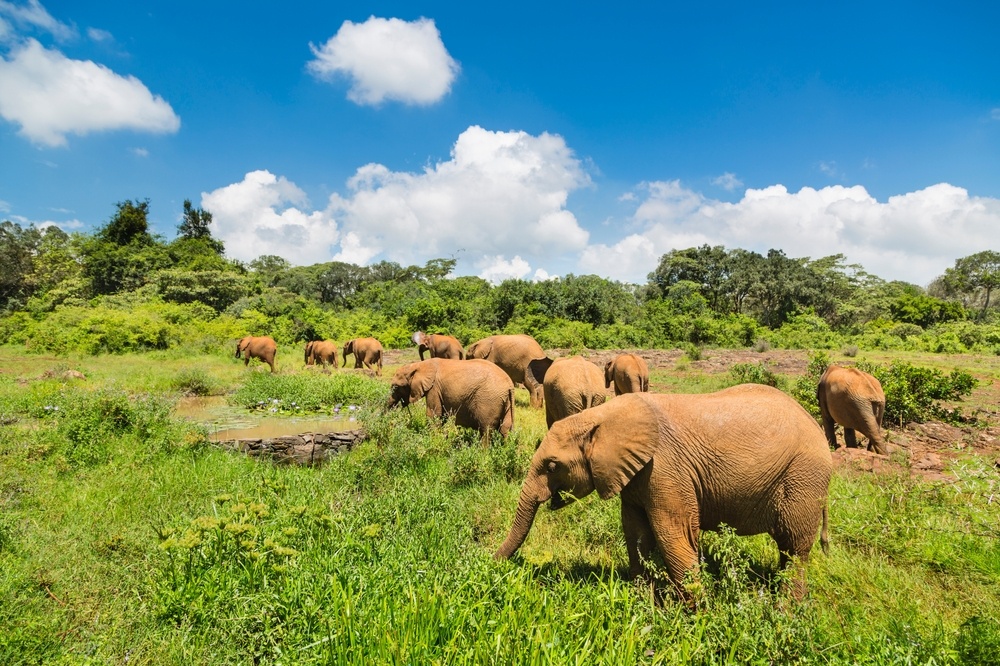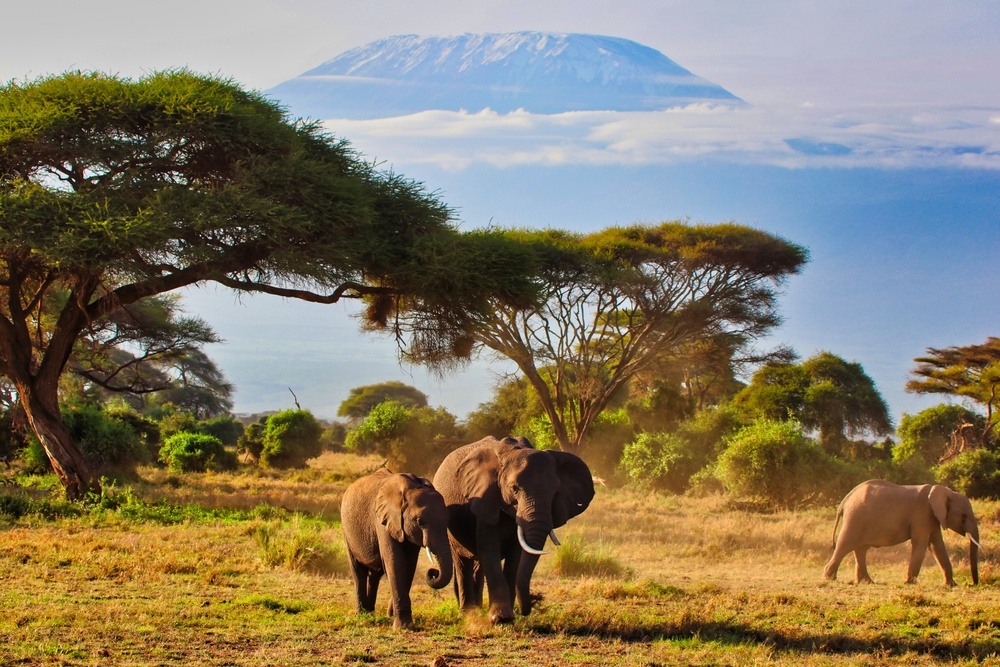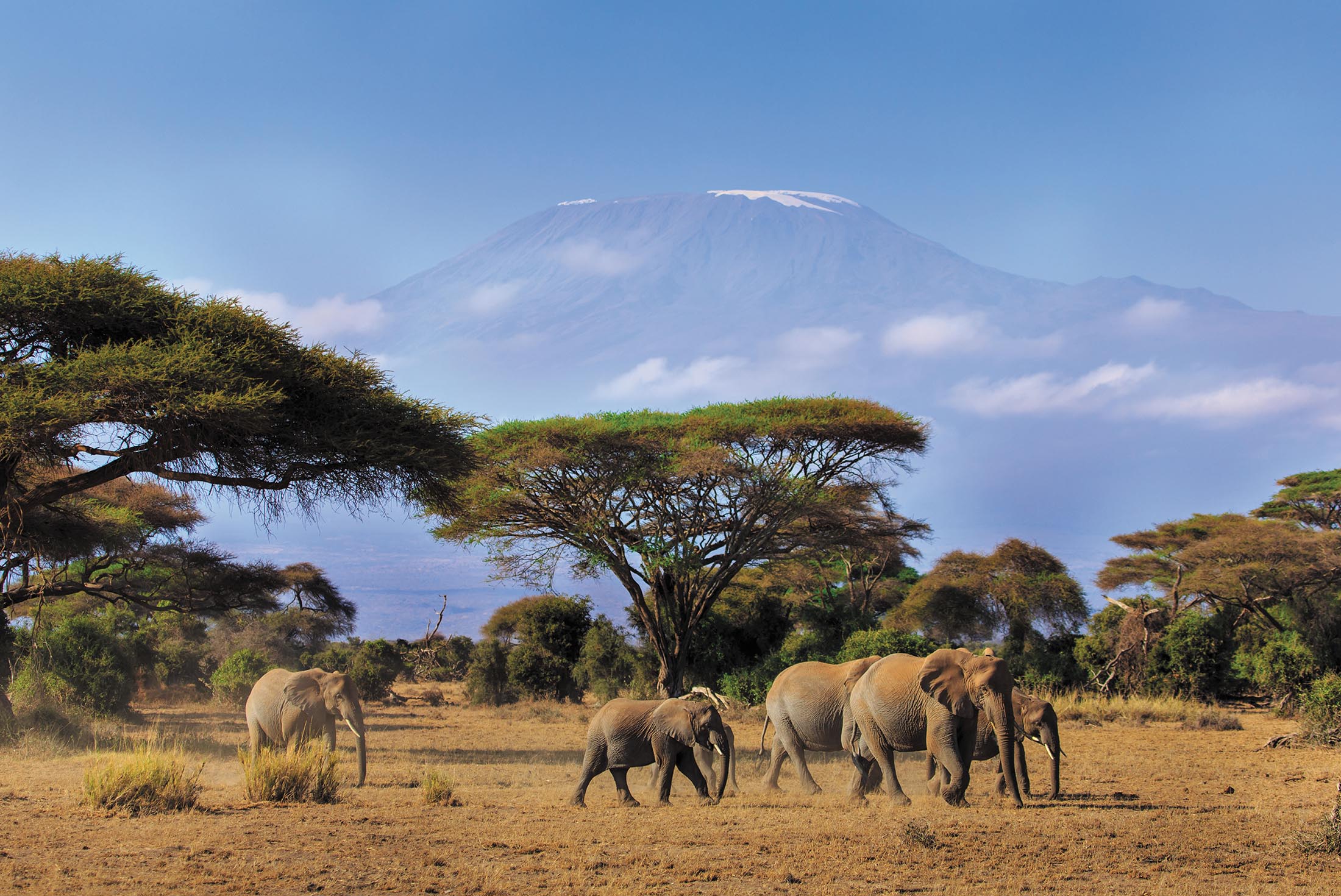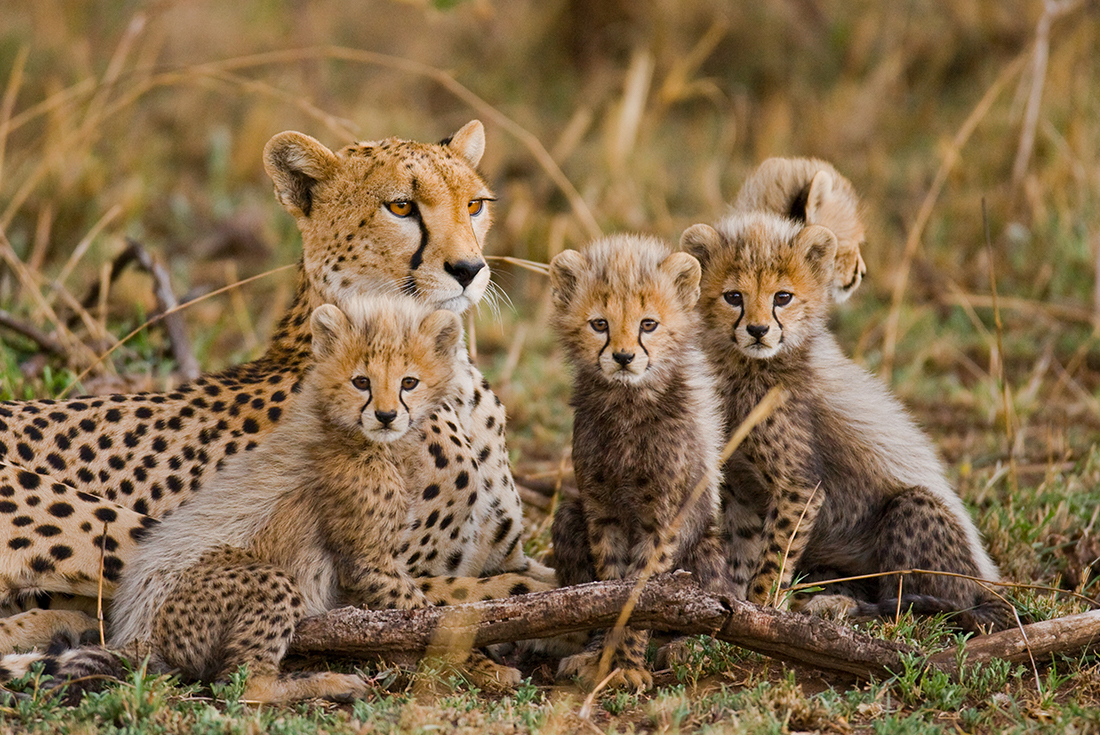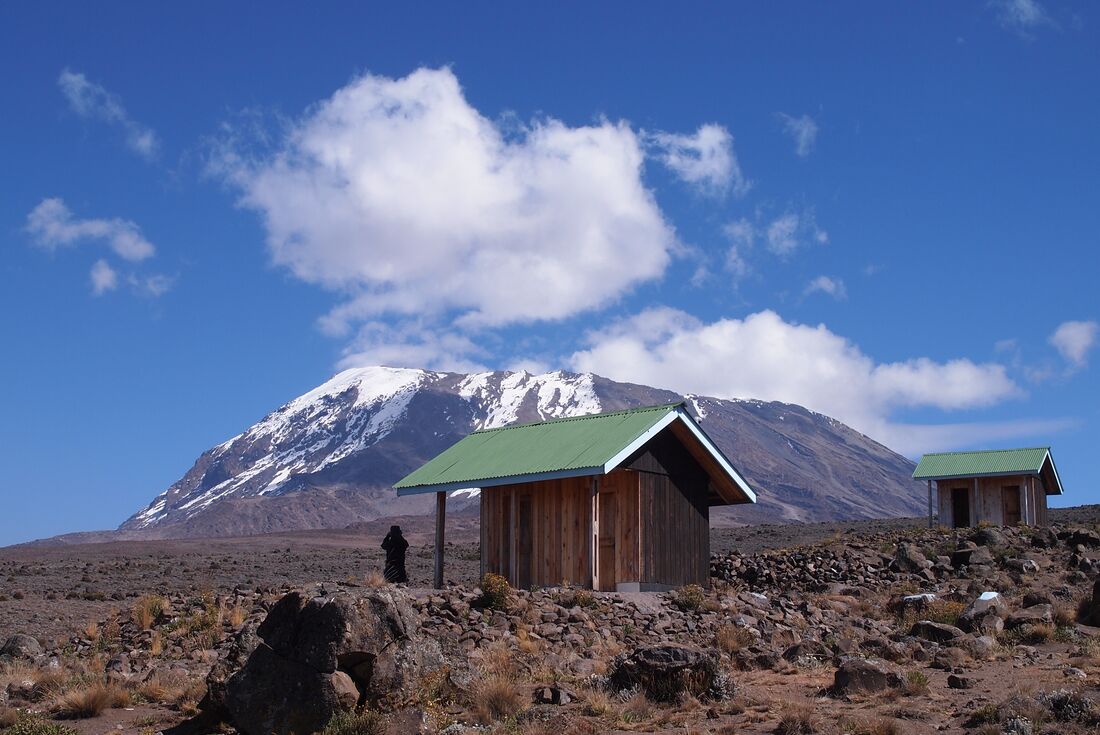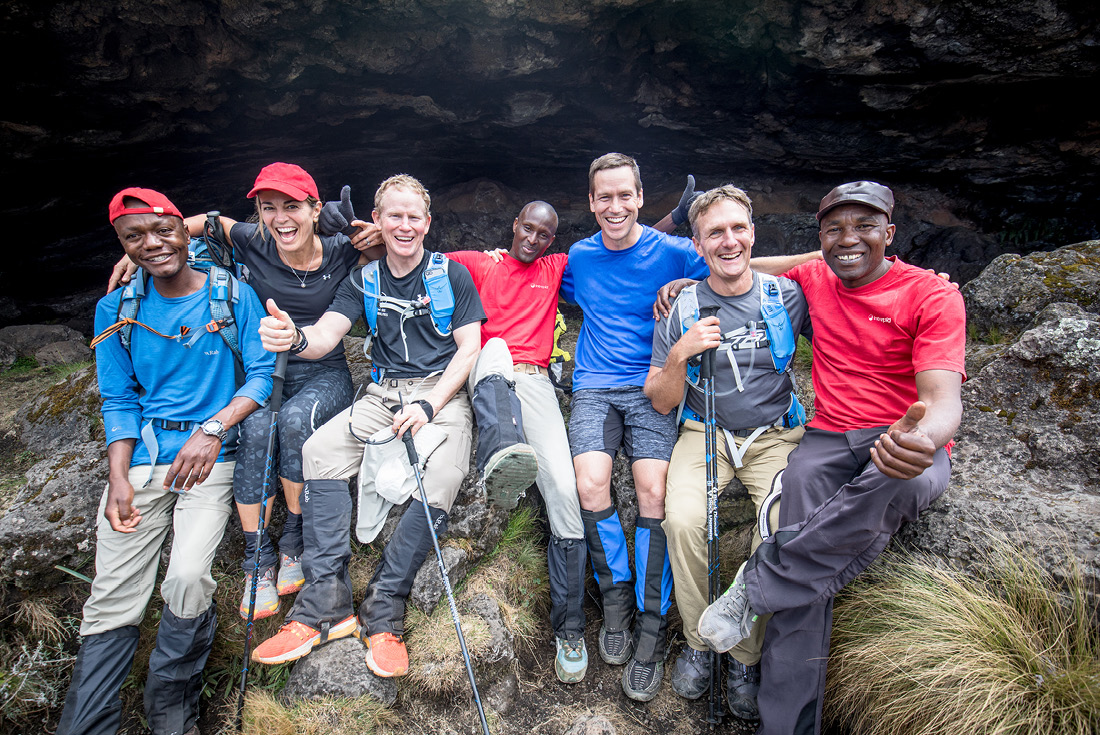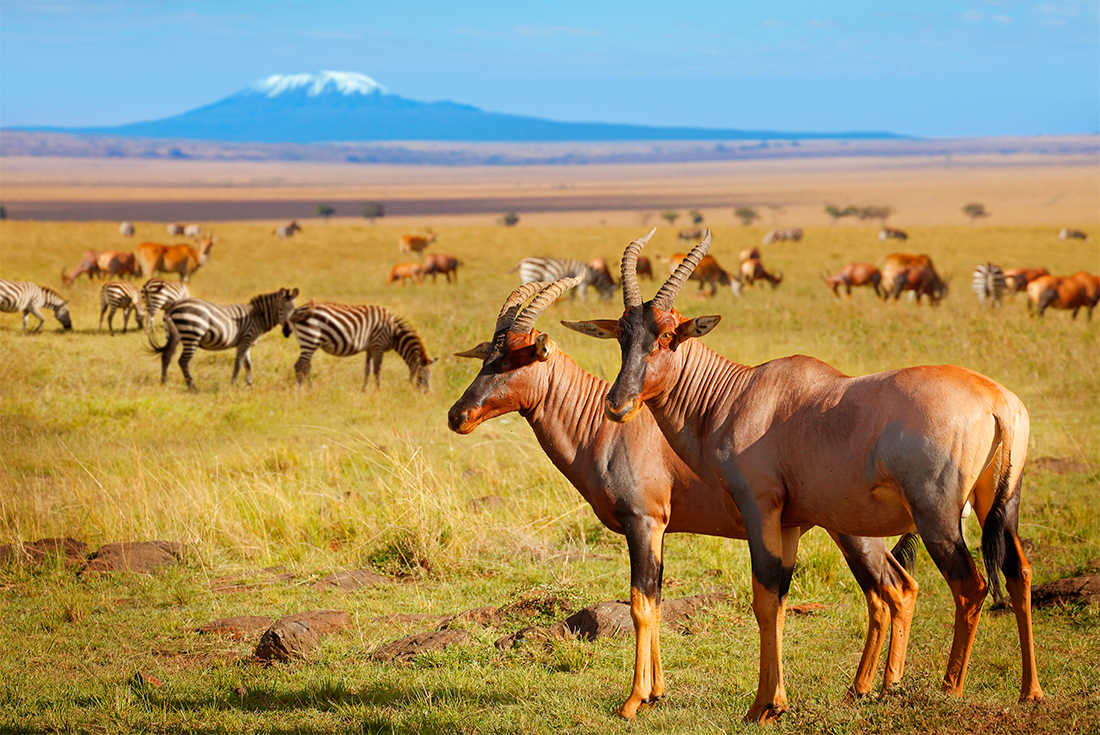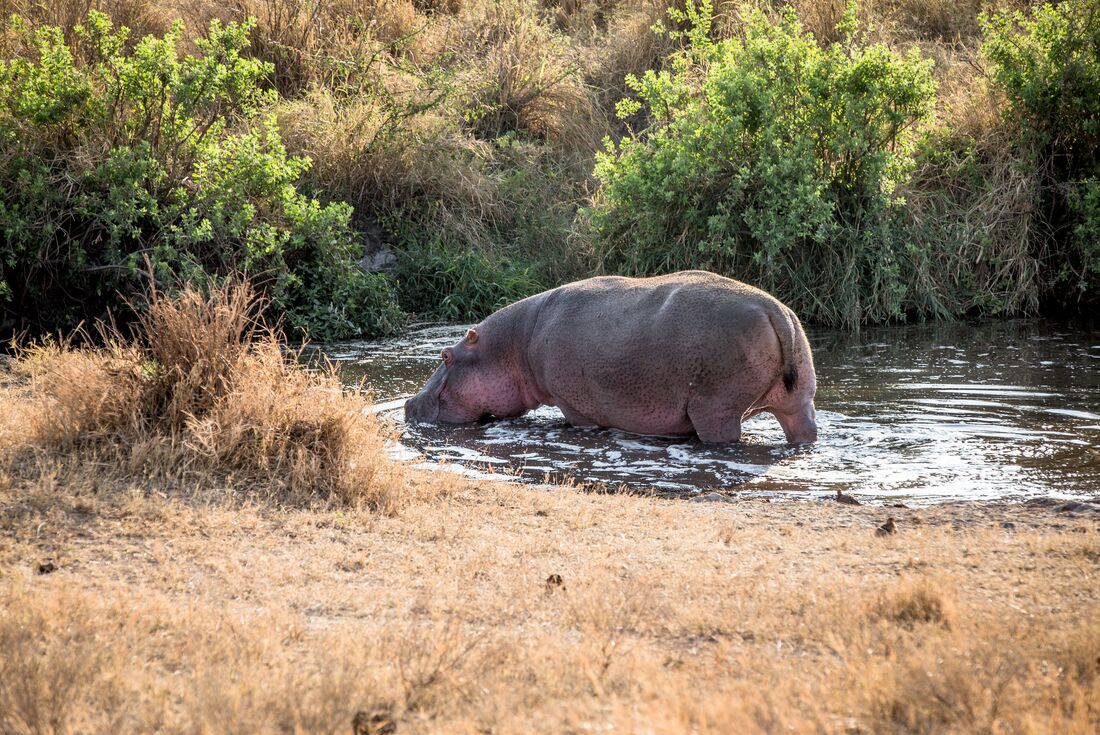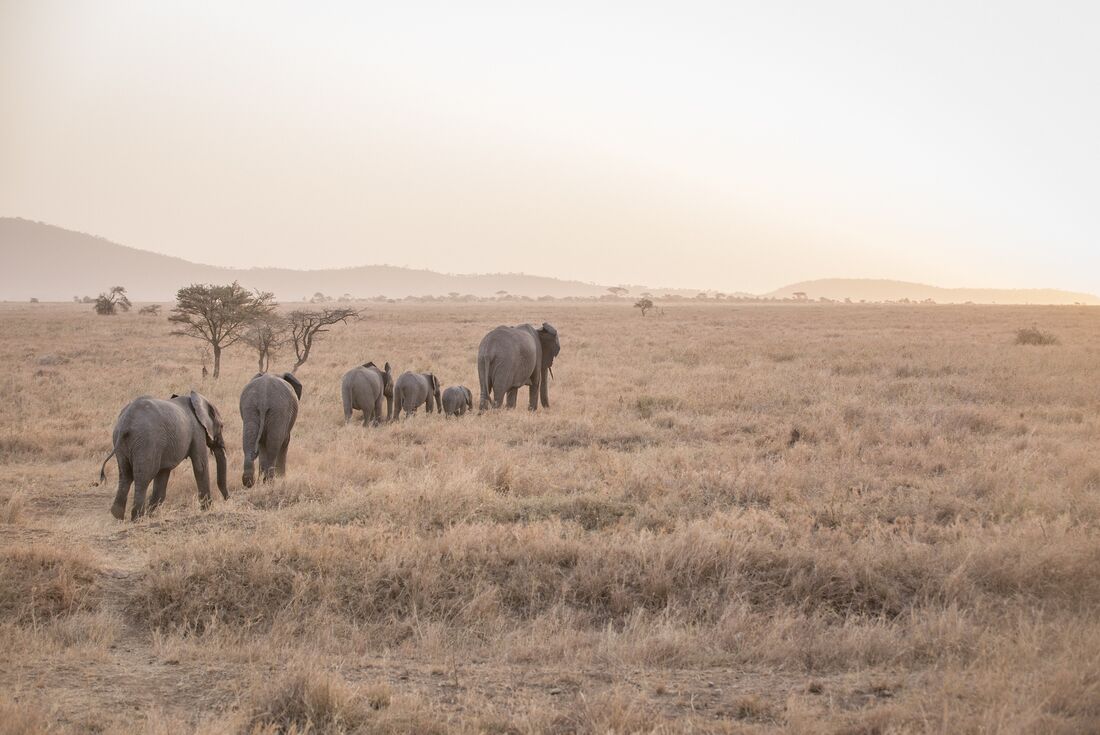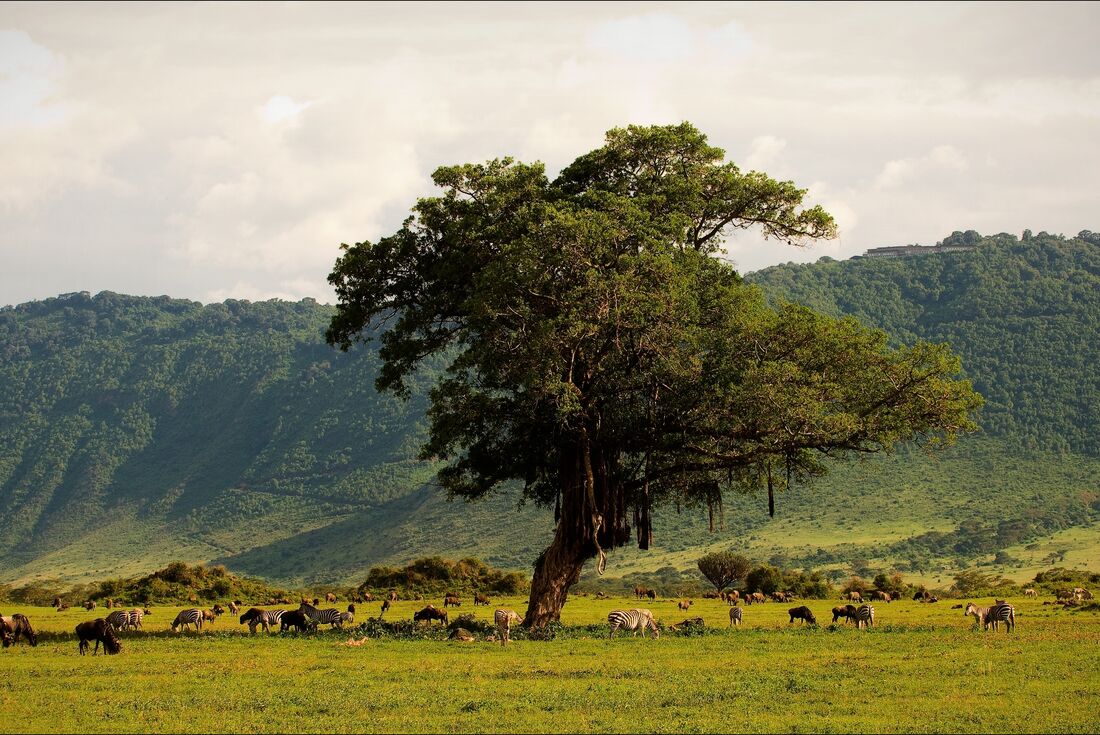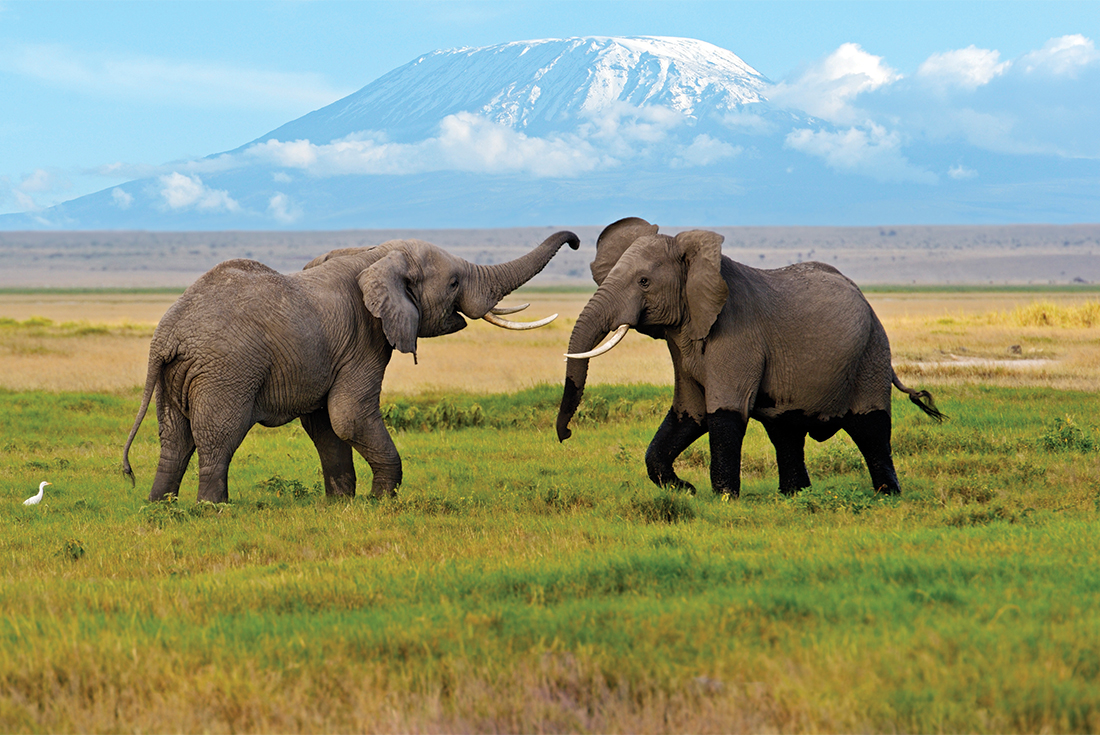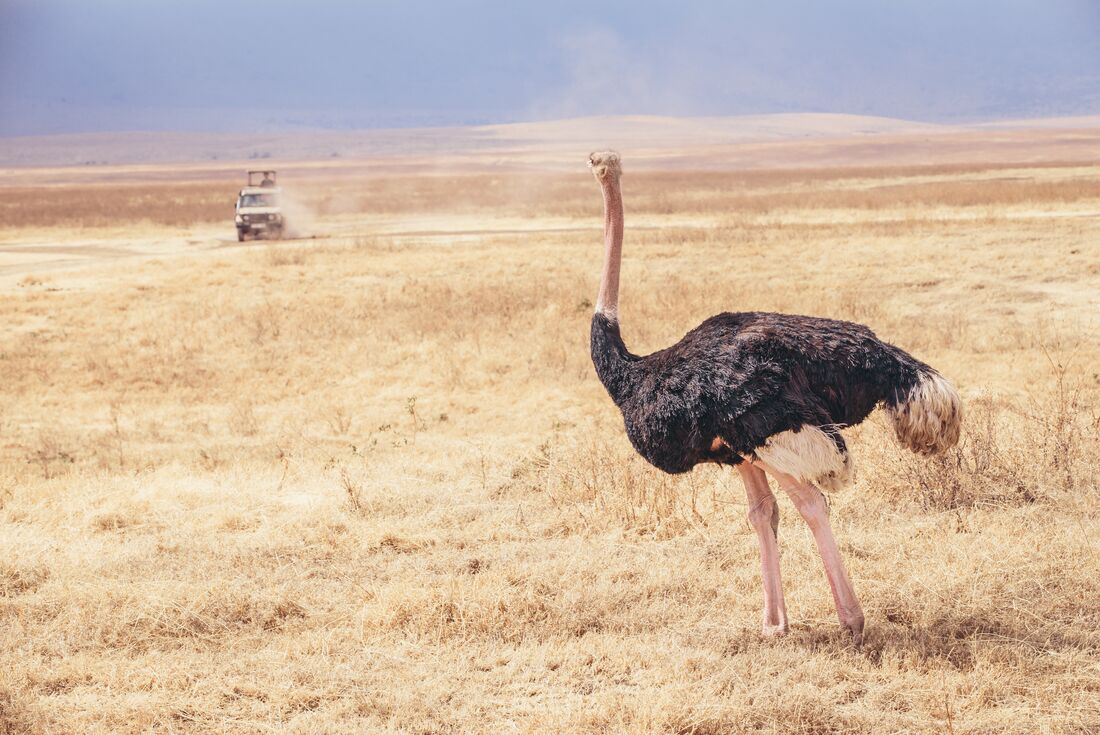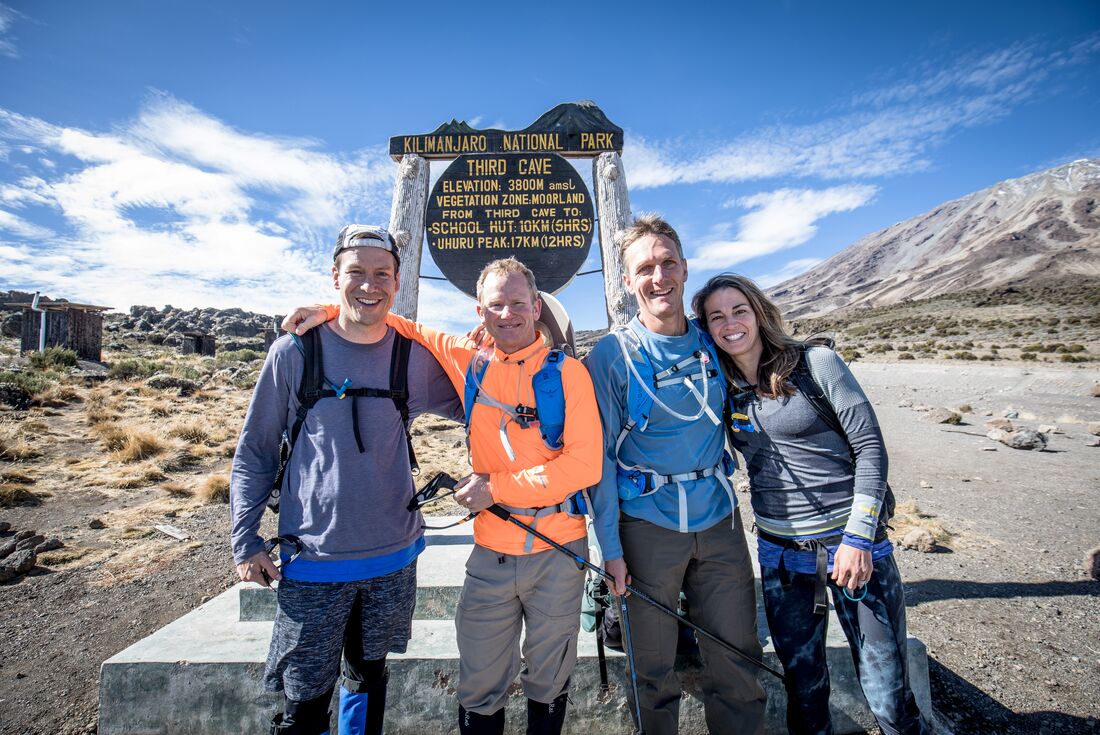Safari to Kilimanjaro - Machame Route
Safari to Kilimanjaro - Machame Route
$6790
Tour Overview
Experience some of Kenya and Tanzania's most famous natural wonders on a 15-day adventure that will see you tackling the most challenging and scenic way to the roof of Africa on a trek along the Machame route to the summit of Mt Kilimanjaro. Once you descend, embark on an overland journey across the Serengeti plains and enjoy multiple game drives to seek out Africa's iconic animals. Descend to the floor of the gigantic Ngorongoro Crater in pursuit of elephants, lions, and elusive rhinos. This tour is a non-stop active action that's perfect for independent travellers who love a challenge. ...more ...less
Highlights
Itinerary
Day 1: Nairobi
Location: Nairobi
Jambo! Welcome to Kenya. Your adventure begins with a welcome meeting at 6 pm in Nairobi. If you arrive early, you can head out and explore the National Museum of Kenya, the Karen Blixen Museum or the highly recommended Bomas of Kenya, where traditional homesteads of several Kenyan tribes are displayed in an outdoor village. Tonight, why not ask your leader for local dinner recommendations and head out to get to know your fellow travellers.
Optional Activities:
-
Day 2: Amboseli National Park
Location: Amboseli National Park
Accommodation: Camping (basic facilities)
Accommodation Name: Camping (basic facilities)
Meals Included: Breakfast, Lunch, Dinner
Today, you'll board your overland vehicle bound for Amboseli National Park. The park covers an area of about 392 square kilometres and is home to the largest population of African elephants in Kenya, many of which are ‘big tuskers’ (elephants with large tusks). You may even spot a ‘super tusker’ – a male bull elephant with tusks that weigh over 45 kg each, usually so long they scrape the ground. If you're lucky to visit on a clear day, you'll be treated to amazing views of Mt Kilimanjaro. When you arrive, you'll set off on a game drive in your overland vehicle to explore the park and discover the wildlife that calls this place home.
Included Activities:
-
Day 3: Mto Wa Mbu
Location: Mto Wa Mbu
Accommodation: Camping (with facilities)
Accommodation Name: Camping (with facilities)
Meals Included: Breakfast, Lunch, Dinner
This morning, depart early for Mto wa Mbu in your overland truck. Today includes a border crossing from Kenya into Tanzania, so be sure to have your passport handy. While you're on the road, there will be a stop at an ATM and a market or shop to stock up on any supplies you might need for the coming days. Arrive in Mto wa Mbu and acquaint yourself with this delightful small village – it's a fascinating snapshot of small-town African life, situated well off the tourist trail. Later, join the local community for a guided afternoon stroll around the farming areas, milling machine and local homes before enjoying a traditional meal for dinner. Your campsite this evening is located in Mto wa Mbu.
Included Activities:
-
-
Day 4: Serengeti National Park (Ngorongoro Crater)
Location: Serengeti National Park (Ngorongoro Crater)
Accommodation: Camping (with basic facilities)
Accommodation Name: Camping (with basic facilities)
Meals Included: Breakfast, Lunch, Dinner
Rise and shine early today before entering the Ngorongoro Conservation area. When you arrive at the crater, swap your overland vehicle for open roof 4WDs. Take in the spectacular views from the crater's rim as you make your way to the bottom, where animals roam the lakes, rivers, woodlands and hills. The animals here are less wary of humans and vehicles, and as a result, it's easier to watch them up close. Keep an eye out for wildebeest, lion, zebra, cheetah, buffalo, gazelle and the endangered black rhino. Later, head to the wide-open plains of the Serengeti. The Serengeti landscapes see a huge contrast of colours during the year – green after the rains, brown and burnt in the dry season. The never-ending landscape is home to thousands of animals travelling as herds across the plains. This region gets its name from the local Maasai word ‘siringet’, meaning the place where the land moves on forever. Enjoy a picnic lunch, then head to your campsite within the park. Tonight, listen out for the sounds of nocturnal animals as you drift to sleep.
Included Activities:
-
-
Day 5: Serengeti National Park
Location: Serengeti National Park
Accommodation: Camping (with basic facilities)
Accommodation Name: Camping (with basic facilities)
Meals Included: Breakfast, Lunch, Dinner
Start the day nice and early with an overland vehicle game drive at dawn. You’ll head out while the animals are at their most active, then head back to camp for brunch at around 11 am. This morning, there’s also the option of a balloon ride over the park. If you have pre-booked this activity, you will be picked up before dawn and driven to the launch site. After a safety briefing, glide through the dawn, sometimes at tree height, where you’ll get some amazing photo opportunities. Sometimes, you will ascend, getting an overview of the vastness of the plains and the early morning movements of the herds. After landing, dig into a delicious bush breakfast, then return to your camp. After spending the warmer part of the day relaxing with your herd – just as the animals do – depart again at dusk for another overland vehicle adventure through the wild, returning in time for dinner.
Included Activities:
-
-
Optional Activities:
-
Day 6: Karatu
Location: Karatu
Accommodation: Camping (with facilities)
Accommodation Name: Camping (with facilities)
Meals Included: Breakfast, Lunch, Dinner
Enjoy a leisurely overland vehicle game drive and picnic lunch on your way out of Serengeti National Park today. Soak up final views of this incredible spot before making the long drive to Karatu – a small town nearby and your base for the next two nights.
Included Activities:
-
Day 7: Karatu
Location: Karatu
Accommodation: Camping (with facilities)
Accommodation Name: Camping (with facilities)
Meals Included: Breakfast, Lunch, Dinner
Today is a free day to relax or explore at your own pace. You might like to head to a local coffee plantation or take an optional game drive in Lake Manyara National Park. Maybe opt for a hike through the Ngorongoro Reserve Forest to the Elephant Caves – a great way to stretch your legs after a few days of overland travel. You'll hike through the Ngorongoro rainforest as your local guide explains the ins and outs of the area and points out interesting animal tracks and footprints. Marvel at the wild landscape and spot beautiful birdlife as you walk.
Optional Activities:
-
-
-
-
Day 8: Moshi
Location: Moshi
Accommodation: Hotel
Accommodation Name: Hotel
Meals Included: Dinner
Bidding farewell to your truck and crew, this morning you'll make your way back to Arusha where will catch a morning shuttle bus from Arusha to Moshi in the foothills (1300 m) of Mt Kilimanjaro. This section of the trip is unaccompanied by a leader. The shuttle departs from the Impala hotel at around 9 am once your group drops you off. In the early evening there is a full briefing and kit inspection by an experienced Kilimanjaro climber.
Included Activities:
-
-
Day 9: Machame Camp
Location: Machame Camp
Accommodation: Camping (with basic facilities)
Accommodation Name: Camping (with basic facilities)
Meals Included: Breakfast, Lunch, Dinner
Meet your guides and porters after breakfast this morning, then take the opportunity to organise your gear before setting off to the Machame Gate – the south-western entrance to the Mt Kilimanjaro National Park. On the way, stop into one of the clothes lending offices of Kilimanjaro Porters Assistance Projects and learn how their program, supported by the Intrepid Foundation, is assisting porters. Begin your hike around lunch time, starting with a stroll through the rainforest, looking out for some of the many brightly coloured birds here. Set up camp at Machame in the mid-afternoon, ready for your first night on Kilimanjaro! The huts fell into disrepair some years ago, so with the help of the porters, you’ll be setting up tents for the night. Tonight, enjoy a meal prepared by the porters and savour the first night of sleeping outdoors.
Included Activities:
-
-
-
-
-
Day 10: Shira Camp
Location: Shira Camp
Accommodation: Camping (with basic facilities)
Accommodation Name: Camping (with basic facilities)
Meals Included: Breakfast, Lunch, Dinner
Your second day on the mountain takes you out of the rainforest and up a steep ridge into moor land. Watch as the vegetation grows sparser as you ascend along the path to the Shira Plateau – soon, several distinct species, including the giant groundsel and lobelia, will be the only plants dominating the harsh landscape. Spend the night camping on the edge of the plateau and be treated to a golden sunset over the snow-dusted peaks of Kibo.
Day 11: Barranco Camp
Location: Barranco Camp
Accommodation: Camping (with basic facilities)
Accommodation Name: Camping (with basic facilities)
Meals Included: Breakfast, Lunch, Dinner
After breakfast today, enjoy a fantastic walk as you continue through the rolling landscape and deep river valleys, stopping for a packed lunch along the way. The undulating land here offers a great chance to acclimatise and as you ascend to the more rugged areas of the mountain, there are great views of the Kibo Massif and its scenic surroundings. Tonight, you’ll sleep at Barranco Camp.
Day 12: Barafu Camp
Location: Barafu Camp
Accommodation: Camping (with basic facilities)
Accommodation Name: Camping (with basic facilities)
Meals Included: Breakfast, Lunch, Dinner
Have breakfast together at Barranco Camp this morning, then begin today’s hike. From Karanga, head up to the intersection of the South Circuit and the Mweka route where you’ll start climbing up a ridge to Barafu Hut. Barafu is Swahili for ‘ice’ – as the name suggests, it can be very cold here at night! You should arrive at Barafu around lunchtime, allowing plenty of time to rest before the final summit attempt very early tomorrow morning.
Day 13: Uhuru Peak / Millennium Camp or Mweka Camp
Location: Uhuru Peak / Millennium Camp or Mweka Camp
Accommodation: Camping (with basic facilities)
Accommodation Name: Camping (with basic facilities)
Meals Included: Breakfast, Lunch, Dinner
At around midnight, you’ll be woken by the guides with some hot tea and biscuits to give you energy before the long, difficult ascent up scree, and sometimes snow, to Stella Point (5780 m). Pass the giant Rebmann Glacier on the way, and hopefully arrive at Stella Point in time for sunrise and superb views of the crater and the glacier glistening in the morning sun. From Stella, it’s a further 1-hour hike along the rim of the crater to Uhuru Peak (5896 m) – the highest point in Africa! From the summit, take in unforgettable views of the crater, the ice fields and the vast East African plains below. After some photos and well deserved pats on the back, you’ll begin your descent. Back at Barafu Camp, enjoy a well-earned lunch and much thicker air. After, continue to Mweka Camp for the night for a well-deserved rest.
Day 14: Uhuru Peak / Millennium Camp or Mweka Camp
Location: Uhuru Peak / Millennium Camp or Mweka Camp
Accommodation: Camping (with basic facilities)
Accommodation Name: Hotel
Meals Included: Breakfast, Lunch, Dinner
Today, you’ll continue to descend the mountain, traversing alpine meadows and rainforest to the Mweka park gate. When you arrive, have some lunch after checking out of the park and then transport back to the hotel for a relaxing shower – a real treat after the physical exertions of the last few days! Tonight, gather with your trekking companions for dinner, sharing your experiences of the past six days on the mountain.
Day 15: Moshi
Location: Moshi
Accommodation: Hotel
Meals Included: Breakfast
With no activities or trekking planned for today, you’re free to depart at any time. Transfers to Kilimanjaro Airport or a shuttle to Nairobi can be arranged locally – please speak to your leader at your welcome meeting if you wish to organise this.
What's Included
-
Accommodation
Camping (with facilities) (3 nights), Camping (with basic facilities) (8 nights), Cottage (1 night), Hotel (3 nights) -
Meals
14 breakfasts, 13 lunches, 14 dinners -
Amboseli National Park - Overland Vehicle Game Drive
-
Mto Wa Mbu - Village walk & local dinner
-
Amboseli - Kimana Ranger Project
-
Ngorongoro Crater - 4x4 Game Drive
-
Serengeti National Park - Afternoon Overland Vehicle Game Drive
-
Serengeti National Park - Morning Overland Vehicle Game Drive
-
Mount Kilimanjaro - Trek Briefing
-
Mount Kilimanjaro - Complimentary equipment hire (sleeping bag and walking poles) - must be requested at time of booking
-
Fully catered trek including National Park entrance fees, climbing fee, tented camps & rescue services
-
Mount Kilimanjaro - Porterage of 1 bag (9kg/20lb max)
What's Not Included
-
Tipping and Gratuities
-
International Travel
Included Activities
- Kisii - Soapstone carving cooperative
- Serengeti National Park - Overland Vehicle Game Drive
- Serengeti National Park - Overland Vehicle Game Drive
- Serengeti National Park - Overland Vehicle Game Drive
- Ngorongoro Crater - 4x4 Game Drive
- Mto Wa Mbu - Village walk & local dinner
- Mount Kilimanjaro - Trek Briefing
- Mount Kilimanjaro - Complimentary equipment hire (sleeping bag and walking poles) - must be requested at time of booking
- Fully catered trek including National Park entrance fees, climbing fee, tented camps with toilet tent & rescue services (7 days)
- Mount Kilimanjaro - Porterage of 1 bag (9kg/20lb max)
- Mount Kilimanjaro - Return transfers from hotel to park gate
- Mount Kilimanjaro - Emergency oxygen and comprehensive first aid kits
- Moshi - Kilimanjaro Porters Assitance Project
Transport
- Our trucks are purpose-built, self contained safari vehicles. Our fleet of vehicles varies depending on your group size, trip route and style. Your vehicle type may differ from those listed above. It is also important to note that our overland vehicles are not air-conditioned, but all vehicles have windows that can be opened to allow for fresh air. Each seat will have access to a power socket to charge your devices. This outlet will use a UK/Kenyan 3 pronged outlet.
- There are many early starts with long hours spent driving on rough roads on all African itineraries. While most people love the chance to watch the changing landscape and daily village life, feedback shows that long periods of inactivity does not appeal to all clients. We provide the approximate distance covered each day and how many hours this normally takes to drive so that you can choose the safari experience that is right for you.
- African conditions are extremely tough on vehicles. While we fastidiously maintain our vehicles at our workshops, you should not expect Africa to be your traditional touring experience. While it's certainly our aim to avoid them, it's important that you set off on your trip knowing that the occasional breakdown can happen and are best treated as part of the African adventure. Due to wet weather there may be times when we have to take an alternative route which will mean longer travel times.
Accommodation
- Accommodation on this trip is mainly in two-person canvas dome tents with camping mattresses supplied.
- The type and variety of accommodation are determined by conditions on each of our routes. Each route is different - on some, we use a mixture of campsites and wild camps; on others, we also use hotels. In Africa, it's not usually practical to camp when staying in towns and cities, so we use hotel accommodations and eat out in local restaurants.
- There may be the occasional night stop when we stay on the grounds of a hotel or at a campsite, which may also have rooms/cabins available. In this case, there may be a choice of camping or upgrading to a room. Rooms cost approximately USD 40-100 per room per night for a twin room and cannot be pre-booked. Standards of these rooms vary greatly, and we recommend viewing the room before purchasing the night's accommodation. The day-by-day itinerary advises when upgrades may be possible (subject to availability).
- Keep in mind that if we are staying in dormitory accommodation, you may have to share with other passengers or be split into same-sex rooms.
- Campsites do have facilities, but they usually aren't to the same standard you would find in Western countries. For example, the bathroom facilities can be very basic. Toilet paper is rarely provided, and shower facilities can be as simple as a hose pipe spurting out cold water. Wild camps have no facilities at all.
- At times, there may be spare tents in the vehicles. Unfortunately, these cannot be used without the purchase of a single supplement. This is to ensure the tents avoid wear and tear or are clean and ready for the customers arriving on the next section of the trip.
- On the mountain you’ll be camping out under the stars with a full-service camping experience. You can bring your own sleeping bag or hire one through us (please advise your booking agent), while mattresses are provided. Our two-person tents are ideal for expedition trips and feature a flysheet made from ripstop nylon, anti-mosquito netting, reflective guy ropes and a 3000mm waterhead, ensuring you stay warm and dry even in difficult conditions.
Important Information
- 1. A single supplement is available if you’d prefer not to share a room on this trip. The single supplement excludes Day 2 (Basic Hotel) and Days 3-7 & 9-14 (Camp) where you will be in shared accommodation and is subject to availability. Please speak to your booking agent for further information
- 2. This trip is a combination of YGOT,YAKT,YAKC and YKXA our most popular itineraries. As such the make up of your group and your leader may change on day 8..
- 3. Although no mountaineering experience is required a good level of physical fitness is necessary. You must be comfortable walking 6-8 hours uphill a day.
- 4. Parts of your trip go above 2800 meters / 9200 feet where it is common for travelers to experience some adverse health effects due to the altitude - regardless of your age, gender and fitness. Please see Essential Trip Information for FAQ's.
- 5. As a result of the physical activity involved in this trip, such as strenuous trekking, the location or terrain through which the trip goes and other local factors including altitude, remoteness and temperature, a Passenger Self Assessment Form must be completed, signed and returned to our office prior to your trip.
- 6. Sleeping bags can be hired at no cost on the Kilimanjaro section of this trip. You will be required to provide your own sleeping bag for the Serengeti section of this trip or can hire one at an additional cost.
Mode of Transport
- Our trucks are purpose-built, self contained safari vehicles. Our fleet of vehicles varies depending on your group size, trip route and style. Your vehicle type may differ from those listed above. It is also important to note that our overland vehicles are not air-conditioned, but all vehicles have windows that can be opened to allow for fresh air. Each seat will have access to a power socket to charge your devices. This outlet will use a UK/Kenyan 3 pronged outlet.
- There are many early starts with long hours spent driving on rough roads on all African itineraries. While most people love the chance to watch the changing landscape and daily village life, feedback shows that long periods of inactivity does not appeal to all clients. We provide the approximate distance covered each day and how many hours this normally takes to drive so that you can choose the safari experience that is right for you.
- African conditions are extremely tough on vehicles. While we fastidiously maintain our vehicles at our workshops, you should not expect Africa to be your traditional touring experience. While it's certainly our aim to avoid them, it's important that you set off on your trip knowing that the occasional breakdown can happen and are best treated as part of the African adventure. Due to wet weather there may be times when we have to take an alternative route which will mean longer travel times.
Accommodation
- Accommodation on this trip is mainly in two-person canvas dome tents with camping mattresses supplied.
- The type and variety of accommodation is determined by conditions on each of our routes. Each route is different - on some we use a mixture of campsites and wild camps; on others we also use hotels. In Africa it's not usually practical to camp when staying in towns and cities so we use hotel accommodation and eat out in local restaurants.
- There may be the occasional night stop, when we stay in the grounds of a hotel or at a campsite which may also have rooms/cabins available. In this case there may be a choice of camping or upgrading to a room. Rooms cost approximately USD60-120 per room per night for a twin room and cannot be pre-booked. Standards of these rooms vary greatly and we recommend viewing the room before purchasing the nights accommodation. The day by day itinerary advises when upgrades may be possible (subject to availability).
- Keep in mind that if we are staying in dormitory accommodation, you may have to share with other passengers or be split into same sex rooms.
- Campsites do have facilities but they usually aren't to the same standard you would find in western countries. For example the bathroom facilities can be very basic. There is rarely toilet paper provided and shower facilities can be as simple as a hose pipe spurting out cold water. Wild camps have no facilities at all.
- At times there may be spare tents in the vehicles. Unfortunately these cannot be used without purchase of a single supplement. This is to ensure the tents avoid wear and tear, or are clean and ready for the customers arriving on the next section of the trip.
- On the mountain you’ll be camping out under the stars with a full-service camping experience. You can bring your own sleeping bag or hire one through us (please advise your booking agent), while mattresses are provided. Our two-person tents are ideal for expedition trips and feature a flysheet made from ripstop nylon, anti-mosquito netting, reflective guy ropes and a 3000mm waterhead, ensuring you stay warm and dry even in difficult conditions.
Check out our Q&As
-
Is this trip right for you
Camping in the Serengeti National Park with no barriers between you and the animals is amazing, but it's important to heed the safety advice of your leader. You'll be briefed on arrival.
This is an overland trip. That means you’ll be travelling with a group in a purpose-built vehicle, visiting remote communities, setting up your tent (unless you’re on an Original or Comfort style trip), occasionally roughing it in the bush with no facilities, and getting the best possible views of the Big Five. For more info on this style of travel, see our Africa overland page at intrepidtravel.com/africa/overland.
You'll need a good level of fitness for the Kili section of this trip. The distances may not be long, but the altitude makes it much harder than your average uphill hike.
Tried and tested all-purpose hiking equipment is required for the Mt Kilimanjaro trek. Temperatures at night can get very low when you're above 3500 metres, so warm clothing and a sleeping bag are essential. You can hire this equipment if need be.
Your safety comes first. Our experienced guides will monitor each passenger for any signs of acute mountain sickness. If you show any signs, you'll descend immediately with a guide.
Hiking for several days without a shower can be tough – be prepared for some dust and dirt. A mask, wet wipes and face washer may become your best friends!
As the early bird catches the worm, the early camper sights the animals. There will be many early starts either to make use of the better safari time or to beat the morning traffic on long travel days. ...more ...less -
What policies are in place for Covid-19?
Please contact us for latest COVID-19 policies
-
How long has the tour company been trading?
Intrepid Travel has been taking travellers around the world for over 30 years
-
Will the accommodation included meet local health and safety regulations?
Yes
-
What Ethical Travel credentials does the tour company have?
Since 2002, The Intrepid Foundation has supported over 130 organisations across the world. We’re creating positive impact through the joy of travel, community and connection.
-
Do you operate a “single share” option and how does it work?
Over 50% of traveller travel solo with Intrepid. You can choose to share a room with another solo travelle of the same sex for no additional charge, or choose to pay a single supplement if you’d like your own room. Please request this when booking, and we will secure you a single supplement wherever possible. Please note, if you are booking a last-minute trip, it may be harder for us to secure a single room
Reviews of this operator
1 Select your preferred date
Book with Confidence
-
Free Date Changes
Intrepid Travel allows you to make 10 free date changes, as long as the change is made at least 56 days before the start of the tour.
-
Transfer as credit to Future Tours
Intrepid Travel allows you to transfer existing payments to a future tour to avoid cancellation fees if you can't travel and inform intrepid travel, 56 days before departure.
-
Low Deposit
Intrepid Travel requires a minimum deposit of 400 USD per person or the full booking value, whichever is less, with the final balance not due until 56 days before departure.
-
Cancellation Policy
We don't charge a cancellation fee, here is a summary of intrepid travel charges.
Up to 56 days before tour starts: Forfeit 100% of deposit.
At 55 days before tour starts: Forfeit 30% of booking price.
At 30 days before tour starts: Forfeit 60% of booking price.
At 14 days before tour starts: Forfeit 100% of booking price.
-
Terms and Conditions
Enquire for Extra Savings
Rated 5* on Trust Pilot & ABTA Protected.
Safari to Kilimanjaro - Machame Route
15 Days Starting in Nairobi and ending in Moshi
Visiting: Nairobi, Amboseli National Park, Mto Wa Mbu, Serengeti National Park (Ngorongoro Crater), Serengeti National Park, Karatu, Moshi, Machame Camp, Shira Camp, Barranco Camp, Barafu Camp, Uhuru Peak / Millennium Camp or Mweka Camp ...more ...less
Tour operator:
Tour code:
YKXCC
Guide Type:
Fully Guided
Group size:
1 - 22
Age range:
15-99

